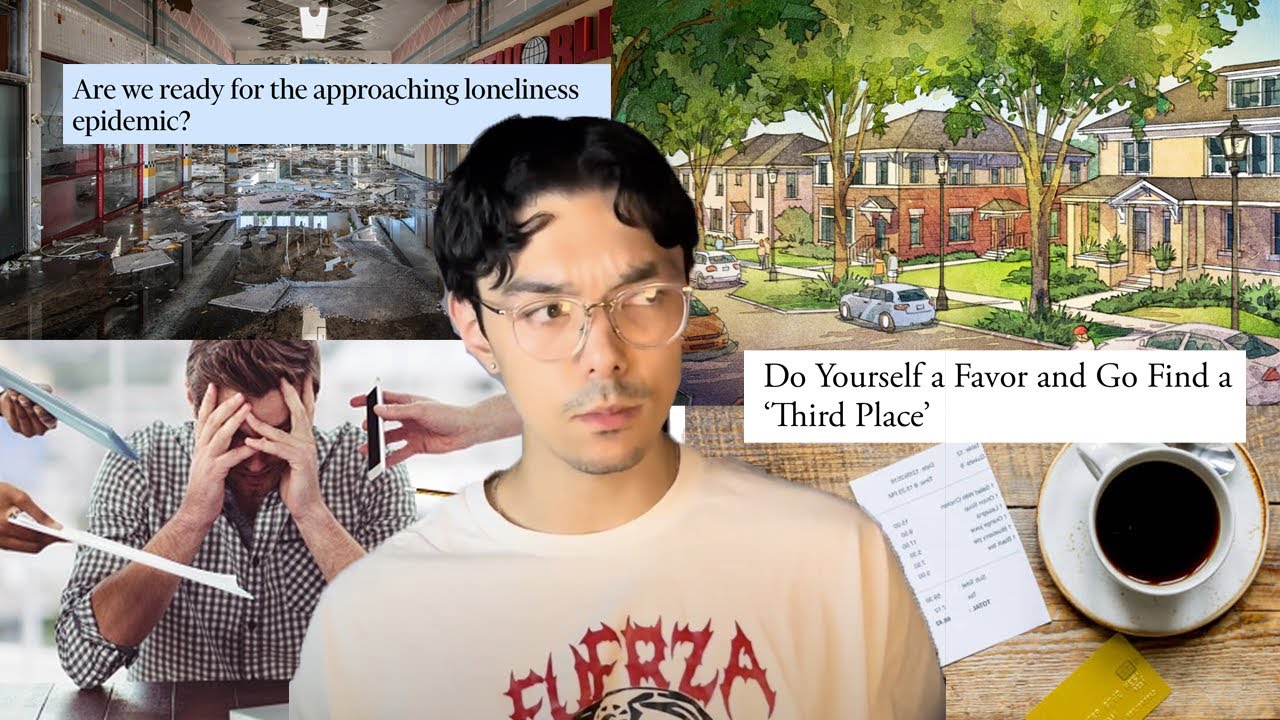Was just discussing this concept with some co-workers after reading some article in Macleans that was blaming kids having a hard time adjusting post-covid on playing Fortnite and video games ala Jack Thompson again. Convenient that this video had come out recently, it helps explain a lot of the nuances



What's just as bad, if not worse, than the loss of third spaces is the commodification of third spaces and I put a ton of blame on Victor Gruen for his innovations in the ways to commodify third spaces by exploiting human psychology.
Obviously the commodification of third spaces was going to happen under the conditions of capitalism due to material conditions and the falling rate of profit and all that, of course, but Victor Gruen is the epitome of the idealist lib who is like:
"Imma implement these changes in society to recreate the loss of community under (then newly-minted) contemporary capitalism and it'll recreate the sense of community and connection to others which has been eroded by capitalism, and I'm going to be completely ignorant to the forces and overall function of capitalism while I do it.
What could possibly go wrong?"
Then, in an ironic twist, the monkey's paw of capitalism subverts the whole notion of recreating spaces for community to thrive by the commodification of Gruen's work and Gruen was horrified by what he had wrought.
To be so close to diagnosing the problems of capitalism and yet so blind to them at the same time is classic liberal ideology doing what it does (by concealing the very nature of capitalism) and the way that a lack of materialism is always gonna screw an MFer over. Git Marxist, noobs.
I didn't know who Victor Gruen was so I looked him up, and apparently he was a socialist. He had this cabaret in Austria that would put on socialist propaganda plays. Had to leave because fascists shut it all down.
Was he like, a "socialist" (lib, like social democrat) kind? Or is it that he thought he could replicate what he loved in Vienna, Austria, and didn't realize how absolutely cursed by capitalism America is?
Being a socialist in Europe at that time, he had to have known about Marx, right? Maybe too "idealist" like you said and not materialist enough.
So it's hard to get a good read on Gruen, although I'm no expert so take the following with a pinch of salt:
Gruen participated in that theatre group which was anti-revisionist, or at least anti-revisionist enough to ridicule leading politicians in the Austrian social democratic party, in his younger days.
That being said, he rubbed shoulders with the Vienna Circle which I'd consider to be eclectic Marxists at best and, although they did discuss things like Lenin's work amongst others, you also have people like Wittgenstein and (ick) Karl Popper coming out of that circle so we're not talking about the sorts of people who you'd consider to be redder than red.
Gruen was strongly influenced by the writings of Josef Popper-Lynkeus, uncle to Karl Popper, who was a proto-socialist (and a proto-Zionist before even Theodor Herzl wrote about Zionism). Popper-Lynkeus wrote about achieving a just society through urban planning and scientific research.
Ultimately I'm not sure how much of a materialist Gruen was based on any direct sources or his political activism but given his naivete and later horror with what capitalism did to his pet idea, I'd say that he was not as Marxist as he was an evolutionary socialist or what we'd count as a social democrat these days.
He was definitely strongly influenced by the early socialist project in Austria along with the geography and the urban "design" (which was much more organic than direcly planned in a strategic, overarching way that we consider urban design to be these days) and he wanted to replicate that same sort of feel which is what drove him to develop the shopping mall.
He was really anti-car too, so you've got to give him credit for that at least.
Absolutely, but how much Marx he read and how assiduously he studied Marx's works, and more to the point, whose interpretations of Marx were the strongest influence on him is hard to say.